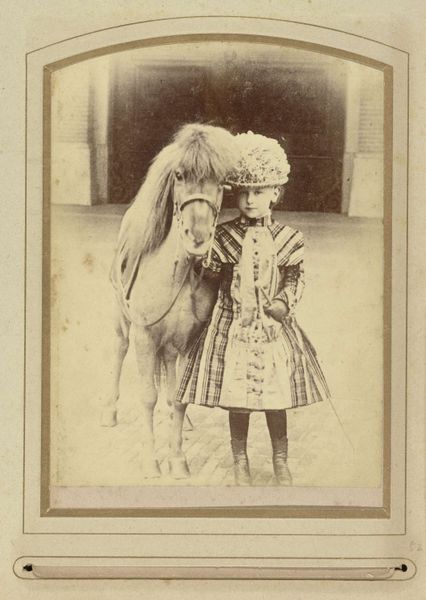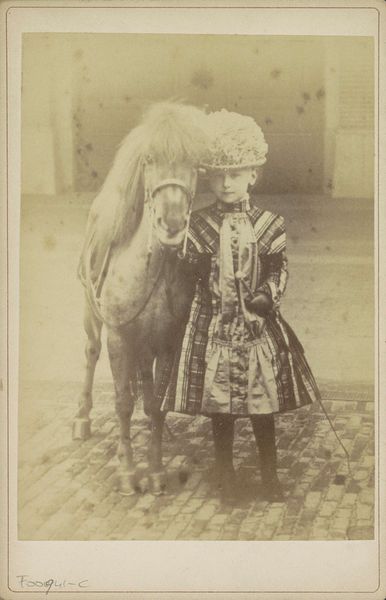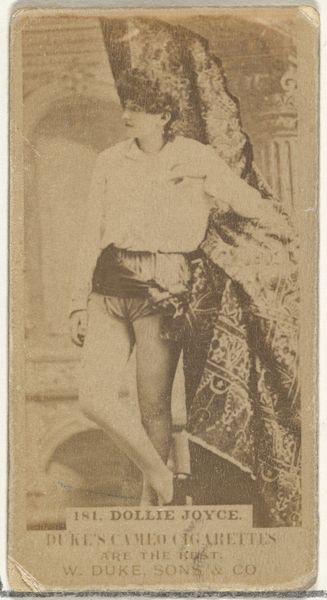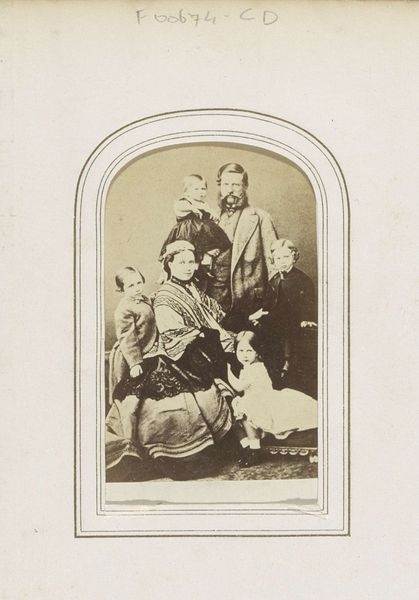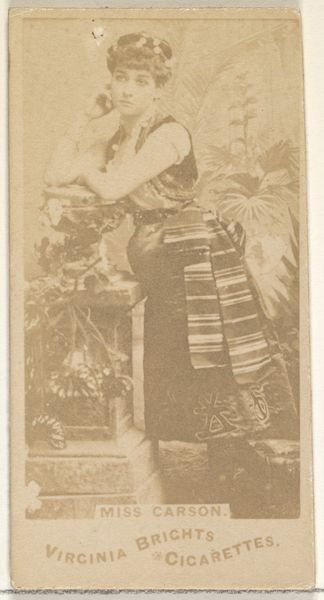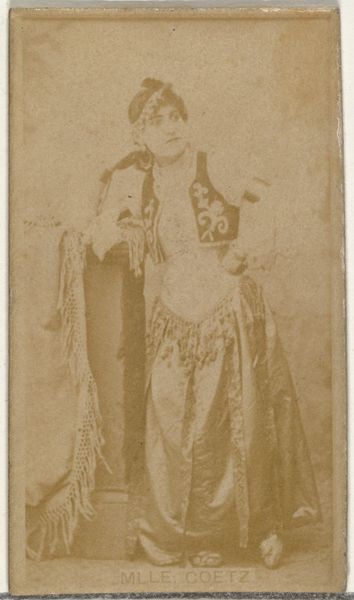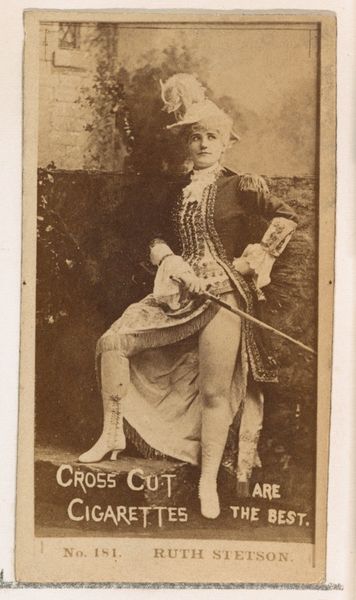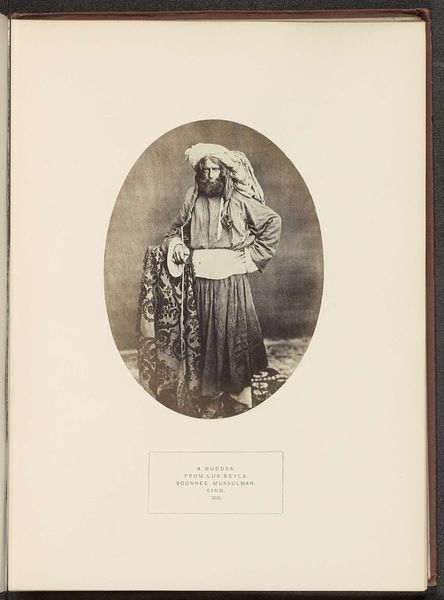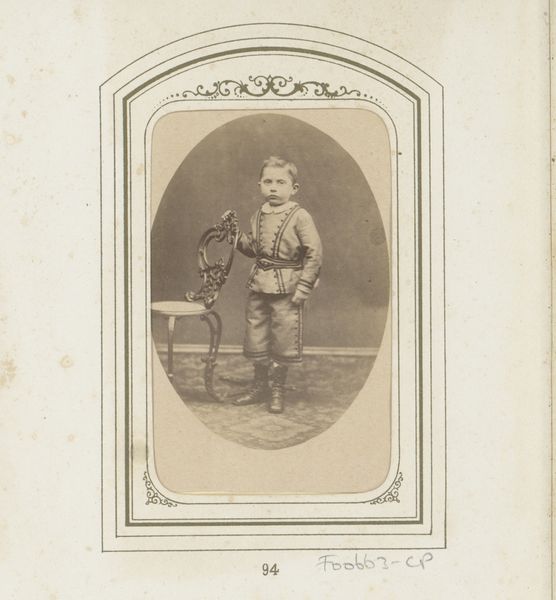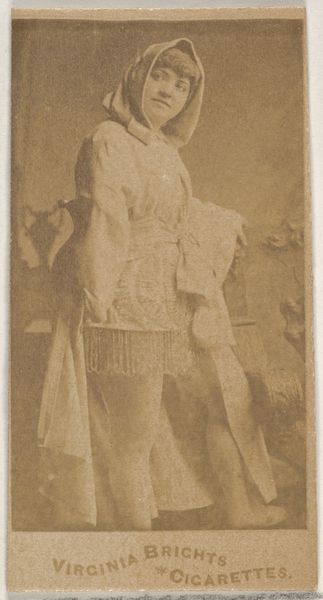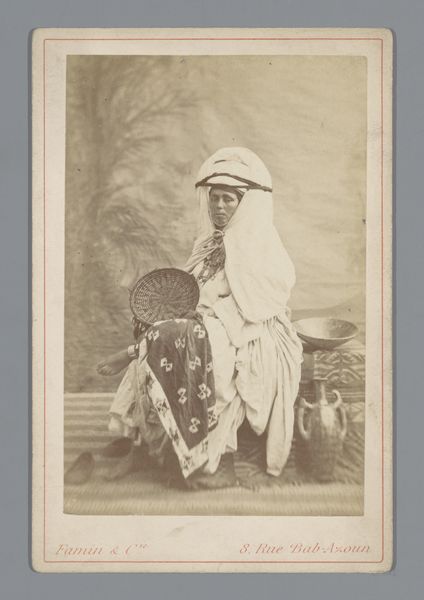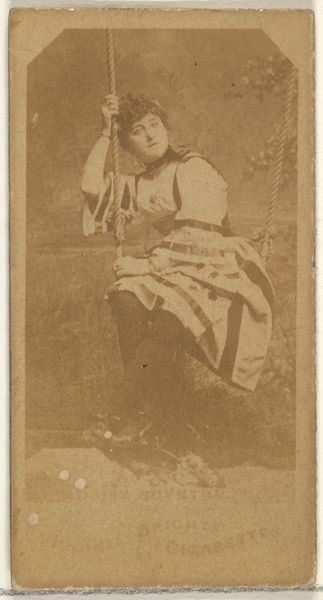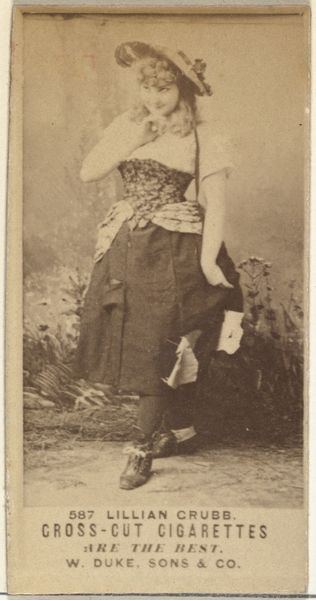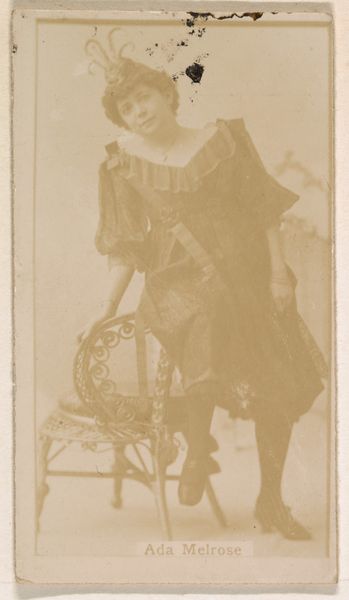
photography
#
portrait
#
animal
#
landscape
#
photography
#
horse
#
19th century
Dimensions: height 104 mm, width 63 mm
Copyright: Rijks Museum: Open Domain
Richard Kameke made this photograph of Princess Wilhelmina as a child with a pony around 1888, using albumen silver printing. This was a popular photographic process during the late 19th century. To make albumen prints, thin paper was coated with a layer of albumen from egg whites, then sensitized with silver nitrate, and exposed to light through a negative. The resulting image has a characteristic sepia tone, with a smooth, glossy surface. The process created a sharp, detailed image, capturing the texture of Wilhelmina’s dress, the pony’s hair, and their overall composure. Albumen prints like this one were valued for their clarity and stability, making them ideal for portraiture. The labour involved in creating such a photograph would have included preparing the albumen emulsion, coating and sensitizing the paper, carefully controlling the exposure time, and then toning and fixing the print to ensure its longevity. The final presentation of the photograph, mounted on cardstock, speaks to the conventions of the time. So, next time you come across an old photograph, consider all the work that went into its production.
Comments
No comments
Be the first to comment and join the conversation on the ultimate creative platform.
